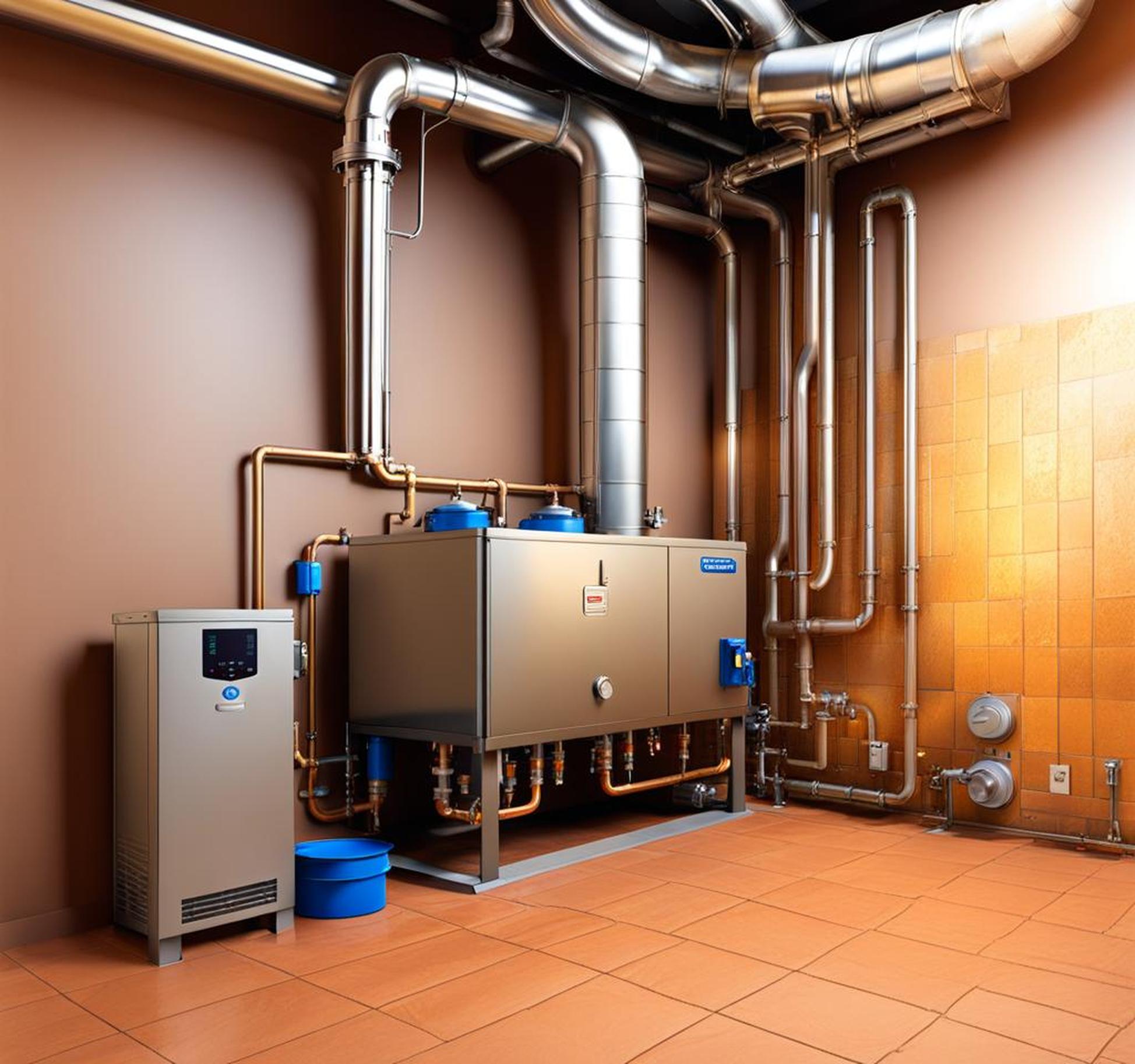Finding a puddle of water or dripping coming from the base of your boiler can be alarming. But don’t panic – with some detective work, you can likely get to the bottom of what’s causing the leak.
Leaks originating from the boiler’s base often stem from corroded pipes or a failing heat exchanger. But worn seals, high pressure, and simple old age can also lead to troublesome leaks.
What Causes Boiler Leaks from the Base?
Corrosion and rust buildup inside the boiler system over many years create cracks and small holes that allow water to escape. This damage occurs out of sight – until leaks appear underneath your boiler.
A failing or fractured heat exchanger will also lead to leakage from the base. Heat exchangers transfer warmth from the burner flames to the water supply. Cracks allow the two to mix and leak.
Finally, some boiled base leaks result from age and wear on boiler components. Gaskets, pipe fittings, and other parts become brittle and degrade after decades of cycling on and off.

Check for These Common Signs of Leaks
Detecting a boiler leak quickly minimizes water damage and safety hazards. Be on the lookout for these clues:
- Puddling water or dripping underneath the boiler
- Rust-colored stains on the boiler exterior or floor
- An unexplained, gradual drop in your system’s water pressure
- Lower water level in your boiler’s expansion tank
Detecting Precise Location of Leak
Finding where exactly tiny leaks originate takes some sleuthing. Here are tips to pinpoint the source:
Start at the boiler base and trace water trails back to their highest point. Use leak detection dye added to the system to spotlight cracks. Examine all solder joints and seals around pipes for wetness or stains.
Why Pipe Corrosion Impacts Boiler’s Base Most
Heat and condensation accelerate rusting from the inside out. Over years, scale and sediment also sink and collect at the lowest point – your boiler base.
Initially tiny, undetectable leaks worsen over seasons of expansion and contraction until pipes fail. Then the floodgates open – from the base upward.
Can Boiler Leaks Go Unnoticed?
It’s shockingly easy to miss small boiler leaks, unfortunately. Crafty water trails underneath or behind equipment. Or water gets absorbed into surrounding walls and flooring before revealing surface-level signs.
By the time you spot leakage evidence away from the actual source, considerable unseen saturation may lurk behind walls or under floors.
Emergency Repairs If Boiler Leaking Badly
Severe boiler leakage may require emergency service to prevent further property risks like mold growth or slip hazards.
Shut off your boiler immediately at the breaker if large volumes of water are escaping. Then call a technician for urgent repairs before addressing any cosmetic water damage.
DIY Temporary Leak Patches and Pressure Adjustments
While DIY boiler repairs are risky, you can take simple steps to slow minor leaks until a pro arrives:
Reduce system pressure to minimize the flow rate. Also try patching cracks with specialized plumbing putty. But use caution and keep all repairs temporary.
Should I Repair or Replace My Leaking Boiler?
The repair vs replacement dilemma often arises when dealing with an aging, leaky boiler. Consider the unit’s lifespan, type, and leak severity when deciding.
Also compare repair costs to the price of a new efficient model likely to save money over time. The level of disruption is another factor that sways decisions.
Don’t DIY boiler leak repairs unless you’re a licensed professional. Improper work risks serious safety hazards plus voided warranties.
When hiring a technician, check credentials and experience with your boiler model. Understand what the diagnosis visit and actual repairs will cost with or without upgrades.
While no one welcomes an unexpected boiler leak, identifying the underlying cause is the first step toward a long-lasting solution. With some savvy troubleshooting, you can get pro repairs underway and save your system from permanent damage.
1. Corroded Pipes: Over time, the pipes that carry water to and from the boiler can become corroded, causing small leaks or even major ruptures. If you notice that the leaks seem to be coming from the pipes rather than the boiler itself, this could be the root cause.
2. Faulty Seals: Boilers have various seals and gaskets that help to prevent leaks. Over time, these seals can become worn or damaged, leading to water leakage. If you notice that the leaks seem to be coming from around the edges of the boiler or any other seals, this could be a sign of a faulty seal.
3. Old Age: As mentioned earlier, boilers generally last around 20 years. After this point, the components can start to fail more frequently, leading to more frequent leaks. If your boiler is particularly old, it may be time to consider replacing it with a newer, more efficient model.
4. High Water Pressure: If the water pressure in your home is consistently high, this can put undue strain on your boiler and cause it to leak. If you suspect that high pressure is the culprit, adjust your pressure reducing valve accordingly.
